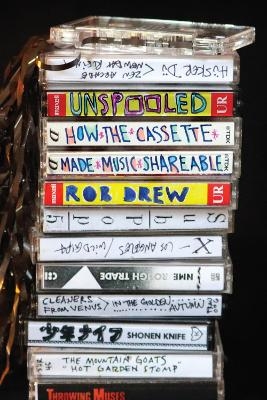
Unspooled
Duke University Press (Verlag)
978-1-4780-2083-7 (ISBN)
Rob Drew is Professor of Communication at Saginaw Valley State University and author of Karaoke Nights: An Ethnographic Rhapsody.
Acknowledgments ix
Introduction. Love, Theft, and Audiotape 1
1. Home Taping and Its Discontents 25
2. The Cassette Underground and Aboveground 48
3. Gatekeeping the Cassette Release 71
4. Cassettes in a Vinyl Universe 84
5. Cultures of Re-Recording 102
6. Mix Tape Memories and Fictions 127
Conclusion. Your Hiss Is What I Miss 153
Notes 165
Bibliography 183
Index 207
| Erscheinungsdatum | 08.12.2023 |
|---|---|
| Reihe/Serie | Sign, Storage, Transmission |
| Verlagsort | North Carolina |
| Sprache | englisch |
| Maße | 152 x 229 mm |
| Gewicht | 476 g |
| Themenwelt | Kunst / Musik / Theater ► Musik ► Pop / Rock |
| Sozialwissenschaften ► Kommunikation / Medien ► Medienwissenschaft | |
| ISBN-10 | 1-4780-2083-0 / 1478020830 |
| ISBN-13 | 978-1-4780-2083-7 / 9781478020837 |
| Zustand | Neuware |
| Informationen gemäß Produktsicherheitsverordnung (GPSR) | |
| Haben Sie eine Frage zum Produkt? |
aus dem Bereich


